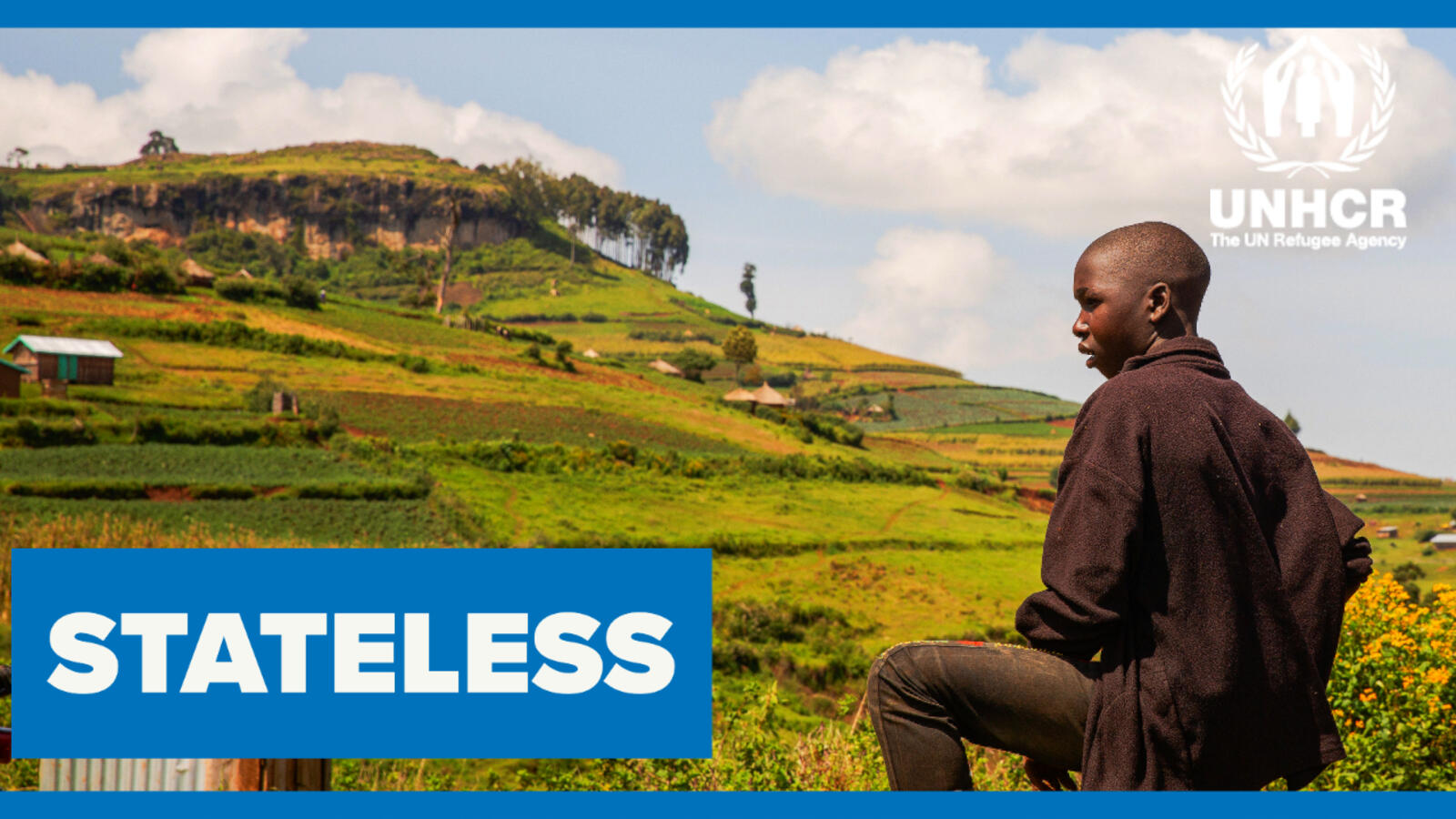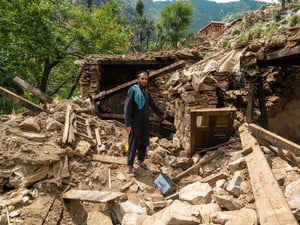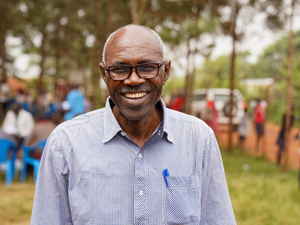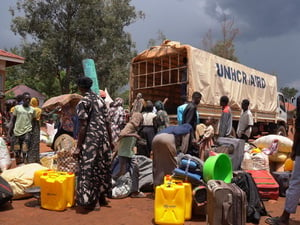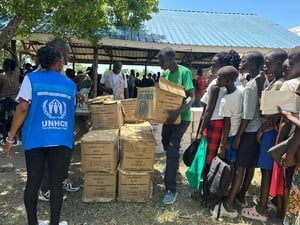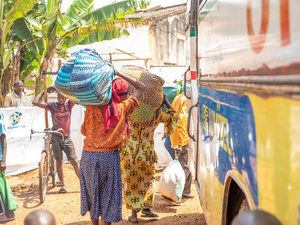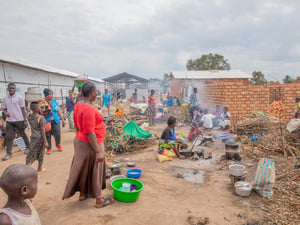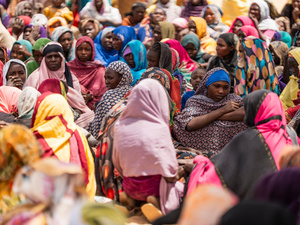Indigenous community in Uganda seeks an end to their statelessness
Indigenous community in Uganda seeks an end to their statelessness

Moses Mwanga Kapchekwengu, miembro de la comunidad apátrida de Benet, lleva décadas defendiendo los derechos de su pueblo.
Moses Mwanga Kapchekwengu sits on an old rocking chair outside his home in the Mount Elgon region in Uganda. The 77-year-old was the first person in his village to attend primary school.
“I went to school by accident,” he says with a wry smile.
He recalls how he felt, as a young boy, seeing children dressed in school uniforms for the first time. He had gone to a local market with his mother so she could barter handmade bamboo baskets for food.
“I was fascinated by the uniform they wore. It was beautiful, and I wanted one for myself,” he says.
He dreamed of going to school but didn’t have a birth certificate. Without it, his mother couldn’t register him for classes. Moses comes from the Benet, an indigenous community who have lived in the Mount Elgon region for centuries. The Benet are stateless. Many have no legal identity papers and no proof of their citizenship.
When Moses turned 13, his mother took him to live with distant relatives from a different community in the hopes that he would get an education. They adopted him, which meant he was finally able to go to school.
“I felt I had achieved something as a child for a community that was largely excluded. I became an inspiration to many young people who dreamt of going to school,” he says.
"Being stateless affects us so much."
There are about 12,000 Benet people in Uganda. They are pastoralists and hunter-gatherers. In the 1930s, the former colonial government excluded them as one of Uganda’s indigenous communities. After Uganda’s independence in 1962, the Benet were left out of the constitution and were not included in new amendments.
“We used to live in the moorlands and other communities used to live in the grasslands,” Moses says. “When the British came, they gazetted the whole area into a forest reserve and that’s where our problems began. We immediately became landless,” Moses explains.
Statelessness has had a devastating impact on the community. There are no schools, hospitals or other essential services in the area. Roads are underdeveloped. The nearest towns are hundreds of kilometres away.
“We need to be recognized as citizens of the country because being stateless affects us so much,” Moses says. “When it comes to decision-making, we are not at the table. We feel forgotten.”
After school, he trained as a teacher and returned home to help his community. Moses is an activist who is championing change for his people, but challenges remain. Without schools, children miss out on an education. Many Benet also live in poverty. They can’t get jobs or even start businesses.
Like Moses, David Mande wants to change the plight of the Benet. He is the coordinator of the Benet Indigenous Ethnic Minority Group, a community organization that advocates for their rights.
“I feel a lot of agony,” says David. “Sometimes I may desire to access services from a financial institution, say a bank loan, but I cannot because I don’t have a national ID. Sometimes, I feel like flying like others do but I cannot even access a passport.”
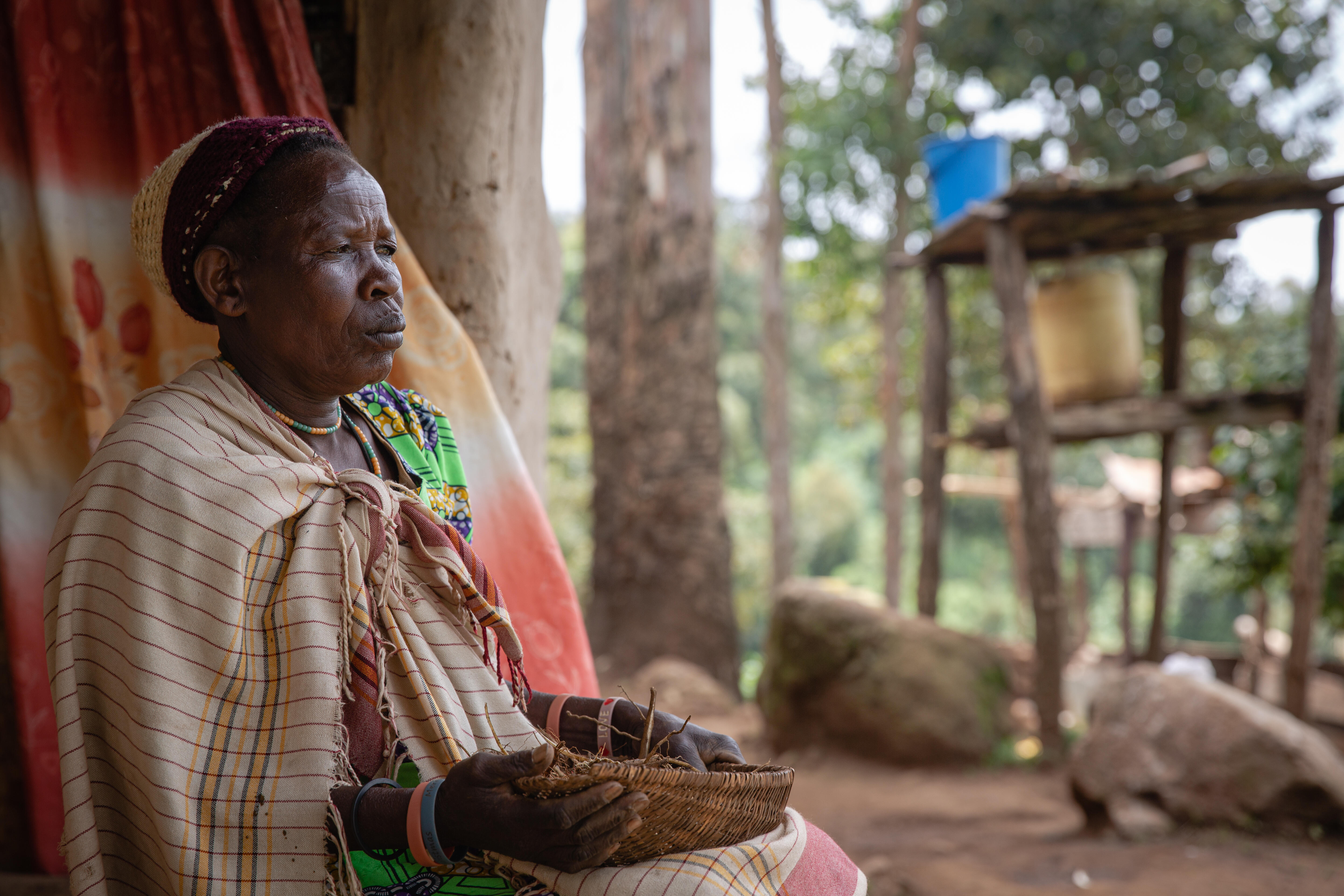
Viola Kokop, de 69 años, partera tradicional de la aldea de Kapkween, en el distrito de Kween.
UNHCR, the UN Refugee Agency, is working closely with the government and community leaders to eradicate statelessness in the country.
“As part of the global #IBelong campaign, our goal is to help end statelessness in Uganda. Statelessness is a man-made problem and relatively easy to resolve and prevent. We want to ensure the Benet can acquire a nationality and become a thriving part of Ugandan society,” says Vivian Oyella, UNHCR’s Comprehensive Refugee Response officer in Uganda.
Since UNHCR launched the decade-long #IBelong campaign in 2014, more than 400,000 stateless people in 27 countries have acquired nationality.
"I am told I am not Ugandan."
Sixty-nine-year-old Viola Kokop, another member of the Benet community, hopes she will receive her citizenship soon.
“I am told I am not Ugandan," she says.
“I want to be accepted, to live like other women and go to the market freely and even get medical treatment without fear. I want to feel free because Uganda is the only home I know.”
Viola is a traditional midwife. Her knowledge has been passed down from one generation to another. She and a handful of other midwives provide the only maternal healthcare in the village as, without official documents, women cannot access medical treatment at clinics and hospitals.
“We can’t make referrals because we don’t have formal qualifications. It’s very difficult when a woman has a more complicated pregnancy and needs to see a doctor,” she explains. “The roads are also impassable, especially when it rains. We often struggle to get our people to the hospital.”
Access to legal documents can make a life-saving difference for the Benet and bring an end to decades of struggle and disappointment.
"We have been here for so long. We need support to fight this discrimination [and] to be recognized as Ugandans,’’ says Moses.

